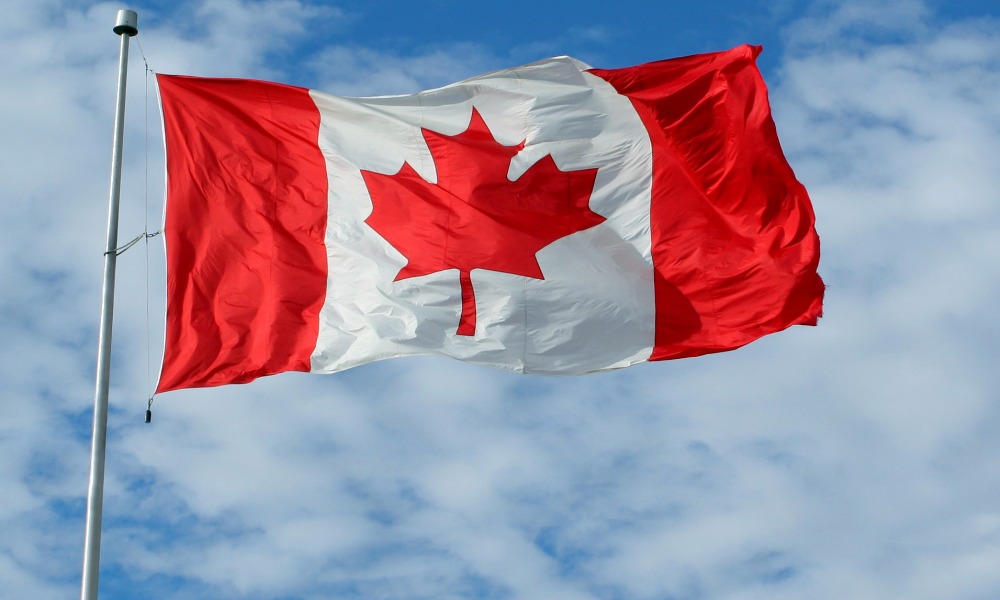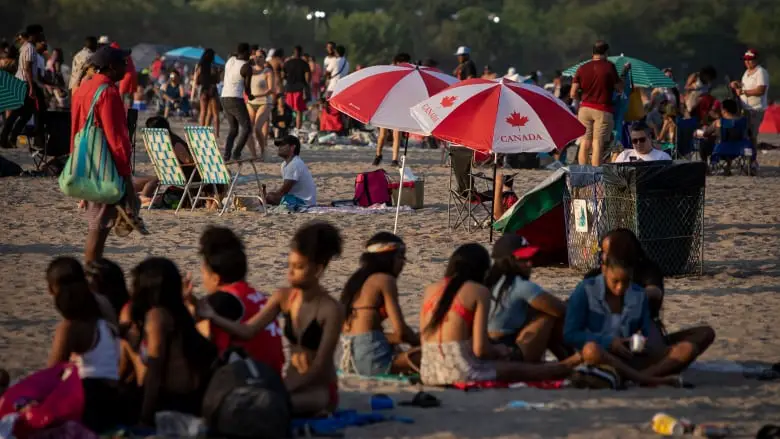If Canada Day falls on a Saturday, most Ontario employers will recognize the day before or after as the substitute holiday. Ontario law allows for the substitute holiday to be observed either before or after the public holiday.
Impact On Paid Holidays In Canada
If Canada Day falls on a Saturday, most Canadian employers will recognize the day before or after as a substitute holiday. This allows employees to still have a paid day off to celebrate Canada Day.
Overview Of The Canadian Statutory Holiday Rules:
- Canada has several statutory holidays that are recognized nationwide, including Canada Day, New Year’s Day, and Christmas Day.
- These holidays are legally mandated, and employers are required to provide paid time off to their employees.
- The specific rules regarding paid holidays can vary between provinces and territories in Canada.
- In general, if a statutory holiday falls on a weekday, employees are entitled to a day off with pay.
- However, if a statutory holiday falls on a weekend, the rules for observance and compensation may differ.
Explanation Of How Weekends Affect The Observance Of Statutory Holidays:
- When a statutory holiday falls on a weekend, it can impact when the holiday is observed and how employees are compensated.
- In most cases, if a holiday falls on a Saturday, it is observed on the following Monday.
- This means that employees would have the day off and receive pay for the Monday rather than the actual holiday on Saturday.
- However, the specific rules for observance can vary between provinces and territories.
Impact Of Canada Day Falling On A Saturday On Paid Holidays:
- If Canada Day falls on a Saturday, it is typically observed on the following Monday.
- This means that employees would have the day off and receive pay for the Monday rather than July 1st.
- Employers are required to follow the statutory holiday rules set by their province or territory regarding observance and compensation.
Examples Of Other Statutory Holidays Affected By Weekends:
- New Year’s Day: If it falls on a Saturday, it is typically observed on the following Monday.
- Christmas Day: If it falls on a Saturday, it is typically observed on the following Monday.
- Victoria Day: If it falls on a Sunday, it is typically observed on the following Monday.
- Thanksgiving Day: If it falls on a Sunday, it is typically observed on the following Monday.
These examples demonstrate how weekend days can impact the observance of statutory holidays and when employees are entitled to a day off with pay.
Overall, it’s important for employers and employees to be aware of the Canadian statutory holiday rules and how they may be affected by weekends. This ensures that employees receive the appropriate time off and compensation for holidays that fall on weekends.
The specific rules can vary between provinces and territories, so it’s essential to consult the relevant legislation or guidelines for accurate information.
Observance In Different Provinces
If Canada Day falls on a Saturday, most provinces in Canada will recognize the following Monday as the observed holiday. This allows for a long weekend celebration.
How Canada Day Is Observed In Different Provinces:
- In Canada, July 1st is known as Canada Day, a national holiday that commemorates the country’s confederation. However, the way this day is observed may vary across different provinces. Let’s take a closer look at the observance in three provinces: British Columbia, Ontario, and Manitoba.
Impact Of Canada Day Falling On A Saturday On Observance In British Columbia:
- When Canada Day falls on a Saturday in British Columbia, the province typically celebrates it on that day itself. However, if the day falls on a Sunday, the observance is shifted to the following Monday. This ensures that everyone has an opportunity to enjoy a long weekend and participate in the festivities.
Observance In Ontario And The Substitute Holiday Policy:
- In Ontario, if Canada Day falls on a Saturday, most employers recognize the day before or the day after the holiday as the substitute holiday. This allows employees to have a continuous long weekend and enjoy the celebrations.
- According to Ontario law, the substitute holiday can be observed either before or after the public holiday. This flexibility ensures that individuals have the chance to celebrate Canada Day with their friends and family, regardless of when it falls on the calendar.
Insights Into Observance In Manitoba And Other Provinces:
- In Manitoba, when Canada Day falls on a Saturday, it is typically observed on that day itself. However, there may be variations in the way individual workplaces or organizations choose to celebrate this national holiday.
- Other provinces in Canada may have their own specific observance policies for Canada Day falling on a Saturday. It’s important to check with local authorities or employers to determine the exact guidelines and plans for celebration.
- Overall, regardless of the day on which Canada Day falls, Canadians across the country take pride in commemorating their nation’s history, culture, and achievements. It is a time for joyous celebrations, fireworks displays, parades, and various other festivities that unite the nation in its love for Canada.
Remember to always stay up to date with provincial and local guidelines to fully enjoy the celebrations of Canada Day, regardless of the day it falls on.
Alternatives And Solutions
When Canada Day falls on a Saturday in Canada, most provinces and territories have alternatives and solutions in place. For example, in Ontario, employers usually recognize the day before or after the holiday as the substitute holiday. This ensures that employees still get to enjoy the benefits of the holiday, even if it falls on a weekend.
Options For Employers When Statutory Holidays Fall On The Weekend:
- Allow employees to take the following Monday or Friday off as a substitute holiday.
- Alternatively, offer employees the option to choose another day off within a certain timeframe.
- Require employees to work on the actual holiday and provide additional compensation or time off in lieu.
These options allow employers to ensure that their employees still receive the benefits of a statutory holiday, even if it falls on a weekend.
Explanation Of Substitute Holidays And Their Regulations:
- In Canada, when a statutory holiday falls on a weekend, employers have the option to designate another day as a substitute holiday.
- This substitute holiday must be observed either before or after the actual holiday.
- The regulations surrounding substitute holidays vary across provinces, so employers should familiarize themselves with the specific rules in their jurisdiction.
Substitute holidays provide flexibility for employers to accommodate their employees’ scheduling needs while still allowing them to enjoy the benefits of a statutory holiday.
Recommendations For Employers To Ensure Fair Treatment Of Employees:
- Communicate the options for substitute holidays clearly to all employees, including the criteria for eligibility and the process for requesting time off.
- Be transparent with the decision-making process for determining the substitute holiday, ensuring fairness and avoiding any perception of favoritism.
- Consider the impact on employee morale and productivity when deciding whether to require employees to work on the actual holiday.
By implementing these recommendations, employers can maintain a fair and inclusive workplace environment during statutory holidays that fall on weekends.
Insights On Employee Rights And Entitlements During Statutory Holidays:
- Employees have the right to receive their regular wages for statutory holidays, regardless of whether they work or not.
- If an employee is required to work on a statutory holiday, they are entitled to receive premium pay, such as overtime or double-time wages.
- Part-time and casual employees may also be entitled to statutory holiday pay, depending on their employment status and the regulations in their province.
It is essential for employers to understand and comply with the laws regarding employee rights and entitlements during statutory holidays to ensure fair treatment and avoid potential legal issues.
Remember, as an employer, it is crucial to stay informed about the specific regulations and guidelines related to statutory holidays in your province. By doing so, you can make informed decisions and create a fair and inclusive work environment for your employees.

Credit: www.hcamag.com
Frequently Asked Questions For What Happens If Canada Day Falls On A Saturday
What Happens When Canada Falls On A Saturday?
When Canada Day falls on a Saturday, it is typically observed on the following Monday.
What Happens When A Stat Falls On A Weekend In Canada?
When a stat falls on a weekend in Canada, it is typically observed on the following Monday.
When Canada Day Is A Saturday?
Canada Day on a Saturday is typically observed on the following Monday as a substitute holiday.
What Happens If A Holiday Falls On A Saturday In Ontario?
Most Ontario employers will recognize the day before or after a holiday that falls on a Saturday as the substitute holiday.
Faq 1: What Happens If Canada Day Falls On A Saturday?
When Canada Day falls on a Saturday, most provinces and territories in Canada recognize the following Monday as a substitute holiday.
Conclusion
When Canada Day falls on a Saturday, it may vary depending on the province or territory. In some cases, the holiday may be observed on the following Monday as a substitute holiday, allowing employees to have a long weekend. However, it is important to note that each province may have different regulations regarding this matter.
For example, in Ontario, employers can choose to recognize the day before or after the weekend as the substitute holiday, providing flexibility for businesses. Similarly, in Manitoba, employees are entitled to the next regularly scheduled workday as their day off.
Therefore, it is crucial for both employers and employees to familiarize themselves with the specific rules in their region to ensure compliance. Overall, while Canada Day falling on a Saturday can lead to some changes in holiday observance, it is ultimately an opportunity for Canadians to come together and celebrate the nation’s history and accomplishments.


